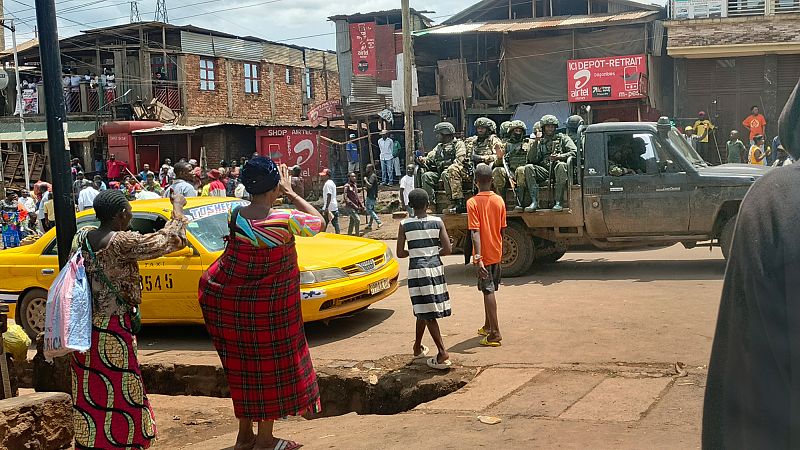Currency crisis in Bukavu: Residents struggle with damaged banknotes

In the rebel-controlled city of Bukavu in eastern Congo, Alain Mukumiro argues with a shopkeeper in a small wooden hut, who refuses to accept his money.
"All my money has serial numbers, but they refuse it because it's glued together," the 36-year-old fridge technician told The Associated Press.
"Yet I had just exchanged it with the money changers along the road," he added.
Innocent Ruboneka, a money changer, said they take the damaged money in exchange for smaller amounts.
"These perforated bills, for 20,000 Congolese francs, we give the owner 5,000. And 5,000 Congolese francs for 500," Ruboneka said.
Damaged banknotes, sometimes taped or glued together, have flooded Bukavu since the M23 rebel group captured the major city in February in an escalation of the decades-long conflict between Congo and armed groups.
The latest fighting has killed some 3,000 people and worsened what was already one of the world's largest humanitarian crises, with around 7 million people displaced.
Shortly before the Rwanda-backed rebels took control of Bukavu, Congolese authorities had closed the city's banks, resulting in a shortage of banknotes.
Banks have remained closed ever since, preventing the city's residents from accessing cash and the banking authorities from regulating the money supply.
In recent months, many residents have started using old, torn and patched-up banknotes to compensate for the lack of regular ones.
It is unclear how the damaged banknotes, which were intended to be destroyed by the banks, have ended up on the market.
Some residents suspect that the money was stolen from the banks during M23's takeover of the city.
The circulation of both damaged and regular banknotes has led to confusion and tensions between buyers and sellers in Bukavu.
Mukumiro said some sellers accept them while others don't.
The father of three children said he and his family often have to go to sleep without food, as many sellers do not accept the damaged banknotes, leaving him without payment methods.
Meanwhile, some shopkeepers complain that they cannot accept the notes because they are in the same situation as their customers.
One shopkeeper said wholesalers won't accept the damaged notes, which puts him at a loss. But his profits are down as most of his customers only have damaged banknotes to pay with.
David Kyanga, a professor of economics at Bukavu's Higher Institute of Commerce, stated that since M23 controls territories like Bukavu, which are not receiving any cash from the Congolese government, the damaged banknotes should be considered valid.
"We are virtually cut off from the world as far as the part of the government that has the power to print money is concerned," he told AP.
He added that the rebel authorities should clearly communicate to the population that the damaged banknotes are valid.
The Congolese authorities in the capital, Kinshasa, have not officially announced whether they will send banknotes to the eastern territories controlled by M23, such as Bukavu.
Several state employees in the rebel-controlled areas said they are no longer paid in cash, while some have received their payments only via electronic money.
Last week, the M23-appointed governor of South Kivu Province, Patrick Busu Bwasingwi Nshombo, stated in a press release that he had opened one of the banks for residents to exchange their damaged banknotes for new ones free of charge.
However, on Tuesday, Nshombo stated that the bank agents were overwhelmed by the suitcases of damaged, torn, and taped banknotes that residents were bringing in, and subsequently ordered the suspension of the operation until further notice.
Today

